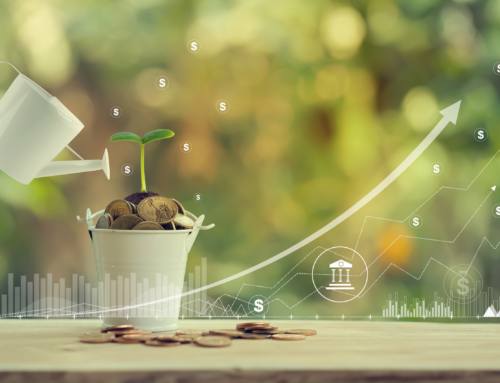Do you have a friend of a friend whose brother’s cousin’s neighbor made a fortune from Bitcoin trading? Of course you do? We all do! Is Bitcoin (and cryptocurrency in general) a good investment? What is it? How does it work? TMWG, what’s your take? I’ll answer all these questions and more (and probably in more detail than you want) so get comfy and read on.
What is cryptocurrency?
As always, I like to start with the basics. What is cryptocurrency? For one, it’s a word that’s only about 12-13 years old. It came about with the birth of Bitcoin, which is the cryptocurrency I’ll focus on in this post, because not only is it the first and most popular of the cryptocurrencies, the price of Bitcoin has gone through the roof over the past year so it’s hot right now. Coming back to the question, what is cryptocurrency? It’s essentially digital money. OK, it’s way more complex than that and we’ll get to the details, but that’s the tl;dr.
So where did Bitcoin come from? In 2008, a software developer (or developers) known only by the pseudonym Satoshi Nakamoto, published a white-paper in which he/she/they introduce the concept and design of a decentralized, P2P payment transaction system. Breaking that down, decentralized means that there is no governing authority. There’s no federal commission, no IRS, no single establishment that owns or moderates the system. Instead, this is where the P2P, or peer-to-peer, piece comes in. In this P2P transaction system, the community of users are, themselves, the governing authority. I’ll talk more about exactly how this works, below, but founded on the same principles of belief and trust that a piece of paper with green ink has value, the first digital currency was born.
The physical proof that Bitcoin was, in fact, a currency, took place about 2 years after its development when the first Bitcoin transaction for a physical object with established value took place. A guy in Florida (go figure) negotiated with another Bitcoin user to deliver him two large Papa John’s pizzas, valued at ~$25, in exchange for 10,000 Bitcoins. At the time of this writing (Jan 2021), 10,000 Bitcoins are valued at about $320 million…and I’m rounding down. Most. Expensive. Meal. Ever.
Since Bitcoin was launched, dozens of other cryptocurrencies have been created. Bitcoin is by far the most popular, but you may recognize other names like Etherium, Litecoin, Tether, and Dogecoin. Dogecoin, by the way, started as a joke based off of the popular meme and is fittingly riding the meme stock wave of 2021, getting a boost in the market, thanks to the r/wallstreetbets Reddit group, along with other underdog (sorry) investments/bets like GameStop, AMC, and Blackberry. Wow! So much price stocks! Very Robinhood!
How does Bitcoin Work? Is it Secure?
Looking beyond the hype of the price for a minute, let’s take a step back and talk about how Bitcoin actually works? Bitcoin is built on top of a technology called blockchain. A blockchain is a database that organizes information into groups aptly named ‘blocks’, and these blocks are then connected. In the case of Bitcoin, a block consists of data associated with a number of Bitcoin transactions (somewhere in the neighborhood of 500). The Bitcoin blockchain is then the entire list of Bitcoin transactions that have ever taken place and each new transaction adds to the ever-growing blockchain
Bitcoin, being a digital currency, is obviously not a physical coin. It’s also not a file you can store on your computer. To access any Bitcoin you might own, you use a digital “wallet”, which is a piece of software you install that allows you to use something called a private key that associates with an address of unspent Bitcoin that exists in the Bitcoin network. Although your specific Bitcoin transactions are private, the Bitcoin blockchain is public. In fact, without owning Bitcoin, anyone can see the Bitcoin blockchain, which again, is the entire history of Bitcoin transactions. Fair warning, it’s not exciting. You can’t see any interesting information, like names or what people paid for. In fact, to most, it just looks like random letters and numbers. Here’s an example Bitcoin transaction.
Having all the transactions public may seem scary and unsafe, but this is actually what makes it secure. Because there is no central governing body, every transaction must be validated by the rest of the network. And since every node (computer) in the network has access to the full blockchain, this means that if someone tried to pass a fraudulent transaction, it would have to fool every other node (computer) in the network…which is pretty much impossible.
If I haven’t bored you to sleep yet, one last thing I need to talk about on the technical side is Bitcoin mining. Mining is how new Bitcoins are introduced into the network. Mining Bitcoin means using computing power to solve the complex equations required to validate Bitcoin transactions and add them to the blockchain. Miners compete to solve these equations and the winner (the first to correctly solve the equation), is rewarded with Bitcoin. Bitcoin was designed to top out at a finite supply of 21 million, of which about 18.5 million has been mined so far. As more Bitcoin is mined, by design, mining it becomes increasingly difficult. So much so that at this point, it’s not practical or profitable (even at the current price) for any individual to do it. Mining requires commercial grade hardware and a ridiculous amount of electricity. The Bitcoin mining network uses about the same amount of electricity as the entire country of Switzerland.

Bitcoin as an Investment
Now to the million dollar question. Should you invest in Bitcoin? Short answer: Maybe. I know that’s kind of a cop-out, but hear me out. Let’s consider a few things. First off, ask yourself a question. What are you actually investing in? With typical investments, like stocks and bonds, there’s something physical there that you are able to touch and see or, at a minimum, you can research to gain knowledge about the institutions and individuals involved. What’s their history? What are their plans for the future? What are their current assets and debts? With a stock, I’m buying in with the belief that a particular company is going to do well, thus increasing the value of my investment. And I can base that belief on the research of real people and actions. With a bond, I’m saying I believe this government or corporate entity’s credit rating is solid enough that they’ll pay me back my money with interest. Again, I can base that belief on research and history. Even though we’re not going around paying each other with gold and silver, precious metals are also physical objects that have global value.
Bitcoin, however, is not a physical thing. It’s not even a file on your computer. It’s a series of addresses that exist only in the proverbial cloud. Personally, this is my biggest internal struggle with Bitcoin and the primary reason why I haven’t invested in it. It doesn’t have a physical existence and it’s not really being used as currency, meaning relatively few people are actually using Bitcoin to make purchases. Because of the volatility and historical price surges, most Bitcoin owners are HODLers. They aren’t spending it. Instead, they’re speculating that the price of the currency will go up. Some see Bitcoin as analogous to digital gold, arguing that the rest of the world is going digital so why should a hedge asset like gold be the exception. The Winklevoss twins (of Facebook near-fame) are two of the most notable proponents of this theory, going so far as to launch their own cryptocurrency exchange and planning to launch a credit card this year that rewards you in Bitcoin.
Yes, since its creation, the price of Bitcoin has gone up…a LOT…like 46 million (not a typo) times its original value. However, the price has been nowhere near a steady climb. Bitcoin’s price has had more ups and downs than a Catholic Mass in a high traffic elevator. One news headline can send the price soaring or plummeting…or both in the same day! This is primarily because Bitcoin is purely speculative and is worth only what people believe it’s worth. Playing devil’s advocate, the same argument could be made about any established currency, but the difference is the long-standing systems that are in place that validate the value of established currencies. You’d have to unroll an impossible amount of red tape, global systems, and human psychology to swing the value of the US dollar at the rate Bitcoin prices move.
Stepping down from my soap box and getting back to the question of should you invest, though. For now, I see Bitcoin as less of an investment and more of a gamble. Technically, any investment has some inherent risk. However, if you’re investing in a business or real estate, there’s something tangible, of which the value can be calculated (to some degree) with real math. I don’t consider myself a gambler, but I do enjoy a trip visit to Vegas. With Bitcoin, I look at it like going to the craps table. I could go to the table, play for a while and walk away with a lot more money than I started with. On the other hand, there’s the chance I could lose everything. Either way, that doesn’t mean playing craps is an investment. And just like the advice given when gambling, you should never bet money you can’t afford to lose. If you’ve got your retirement accounts fully funded and an emergency fund secured and you want to gamble a little, do some research and see if Bitcoin is something you want to roll the dice on. If history is any indication, you should be prepared for a wild ride. Like I said, I don’t currently own any Bitcoin and I personally don’t plan on making it part of my long term investment strategy. My goal and what I try to teach and promote is growing long term and generational wealth. Jumping in and out of hot/meme/crypto stocks isn’t part of my growth strategy. That said, I may take a little “fun money” to the Bitcoin tables and see what happens. I’ll call it blog research.
I’ve found the topic of crypto leads to some fun discussions. What do you think of Bitcoin/crypto? What are your investment goals?
Oh, one last thing. This isn’t directly related to Bitcoin, but I want to invite you to sign up for The Morning Brew’s free daily newsletter. It’s a fantastic resource for quality and digestible financial news. I read it every morning. Please use my referral link to sign up and check it out.








Still don’t understand Bitcoin. Sounds like investing in a “bit” of someone’s imaginary money. I’ll pass.
You’ve got the right idea. If you don’t understand it, that’s a red flag. Don’t risk your hard earned money on something you don’t understand. That’s a key principle I follow in investing…don’t invest in what I don’t know. I don’t see Bitcoin as investing. It’s speculating at best, maybe even closer to gambling. If you have some disposable income and you want to roll the dice, you might make some money. I just don’t recommend neglecting more established investing vehicles to throw money at crypto.
The fact that it is now being accepted as a form of currency on some online retailers makes it more intriguing to me. But I still look at it as something to do with play money; kinda like my FanDuel habit.
Right. It’s being accepted, but very few (relatively speaking) are actually using it for purchases. I saw an estimate of like 500K transactions per day, but given there are likely over 100M Bitcoin owners that number is really small. Most owners are hoarding it in hopes that the price will continue to go up. I agree with you. I treat it like a gamble and bought a little bit with money I won’t miss if I lose it. I haven’t tried FanDuel yet, but maybe you’re just the bad influence I needed. Lol!